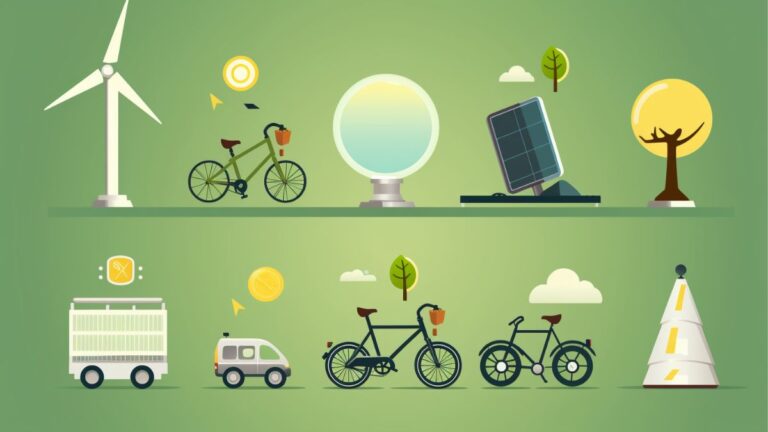Why Opting for Eco-Friendly Practices in Pollution Control?
As concerned global citizens, we all strive to protect our planet and create a sustainable future. That’s why it’s crucial to understand the importance of opting for eco-friendly practices in pollution control.
By actively choosing renewable energy sources, implementing sustainable waste management solutions, promoting eco-friendly transportation options, and embracing green building practices, we can significantly reduce our environmental impact.
In this article, we will explore the various benefits of these practices and their role in creating a cleaner, healthier world for all of us to belong to.
Benefits of Eco-Friendly Pollution Control
There are numerous benefits to implementing eco-friendly pollution control practices. By adopting sustainable farming techniques, we can reduce the use of harmful pesticides and synthetic fertilizers, leading to healthier soil, improved water quality, and increased biodiversity. This not only ensures the long-term viability of our agricultural systems but also promotes the overall health and well-being of communities.
Additionally, embracing green manufacturing processes can significantly reduce the release of harmful pollutants into the environment. This not only minimizes the impact on ecosystems but also improves air and water quality, leading to better human health outcomes.
Furthermore, eco-friendly pollution control practices can help mitigate climate change by reducing greenhouse gas emissions and promoting renewable energy sources. Overall, these practices contribute to a cleaner, healthier, and more sustainable future for all of us.
Renewable Energy Sources for Pollution Control
When it comes to pollution control, renewable energy sources play a crucial role in reducing our environmental impact.
Solar power offers advantages such as clean and abundant energy, while wind energy provides benefits like zero emissions and a sustainable energy source.
Additionally, biomass offers a viable option for pollution control, as it utilizes organic waste materials to generate energy.
Solar Power Advantages
We are proponents of using solar power as a renewable energy source for pollution control.
Solar power offers several advantages in terms of efficiency and environmental impact. One of the main benefits of solar power is its high efficiency in converting sunlight into electricity. Solar panels have become increasingly efficient over the years, allowing for better energy production and utilization.
Additionally, solar power is a clean energy source that doesn’t emit any harmful greenhouse gases or pollutants during operation. This makes it an excellent choice for pollution control, as it helps to reduce air and water pollution.
Furthermore, solar panel installation is a relatively simple process, and solar power systems can be easily integrated into existing infrastructure.
Wind Energy Benefits
To further explore renewable energy sources for pollution control, let’s delve into the benefits of wind energy. Wind energy is a sustainable and clean form of power generation that has gained popularity in recent years. Here are four key advantages of wind energy:
- Environmental Friendliness: Wind power generation produces zero greenhouse gas emissions, making it a crucial tool in combating climate change and reducing air pollution.
- Renewable and Abundant: Unlike fossil fuels, wind is an infinite resource, ensuring a constant and reliable source of energy. With advancements in wind turbine efficiency, harnessing wind power has become more efficient and cost-effective.
- Job Creation and Economic Growth: The wind energy sector provides opportunities for employment and economic growth, benefiting local communities and contributing to a sustainable economy.
- Energy Independence: Investing in wind energy reduces dependence on fossil fuels, promoting energy security and reducing vulnerability to price fluctuations.
Biomass for Pollution Control
Continuing our exploration of renewable energy sources for pollution control, let’s now dive into the benefits of utilizing biomass as a means of reducing environmental harm.
Biomass utilization involves harnessing organic materials, such as agricultural waste, wood chips, and even dedicated energy crops, to generate heat, electricity, and biofuels. This process offers several advantages in pollution control.
Firstly, biomass is a carbon-neutral fuel, meaning that the carbon dioxide released during its combustion is offset by the carbon absorbed during its growth. This carbon sequestration helps to mitigate greenhouse gas emissions and combat climate change.
Additionally, biomass utilization reduces the reliance on fossil fuels, leading to a decrease in air pollution and harmful emissions.
Sustainable Waste Management Solutions
One of the key components in effective pollution control is the implementation of sustainable waste management solutions. These solutions play a vital role in reducing the environmental impact of waste and promoting a cleaner and healthier planet.
Here are four sustainable waste management strategies that can contribute to pollution control:
- Waste reduction strategies: By minimizing the amount of waste generated, we can reduce the need for disposal and the associated pollution. This includes practices such as source reduction, recycling, and composting.
- Circular economy initiatives: Adopting a circular economy approach focuses on designing products and processes that minimize waste generation and maximize resource efficiency. This includes concepts like product reuse, remanufacturing, and extended producer responsibility.
- Waste-to-energy technologies: Utilizing waste-to-energy technologies can help convert waste into renewable energy sources, reducing the reliance on fossil fuels and mitigating pollution from conventional energy generation.
- Landfill management: Proper management of landfills is crucial to prevent the release of harmful pollutants into the environment. Implementing measures such as gas capture and leachate control can significantly reduce pollution caused by landfills.
Eco-Friendly Transportation Options
Our preferred choice for eco-friendly transportation options is electric vehicles. Electric vehicles (EVs) produce zero tailpipe emissions, reducing air pollution and improving air quality. They’re powered by electricity stored in rechargeable batteries, eliminating the need for fossil fuels. EVs aren’t only environmentally friendly but also cost-effective in the long run.
Although the initial cost of purchasing an EV may be higher, the lower cost of electricity compared to gasoline or diesel makes them more affordable to operate. Additionally, EVs require less maintenance, saving money on regular maintenance such as oil changes.
Another eco-friendly transportation option is public transportation. Utilizing buses, trams, and trains can significantly reduce traffic congestion, decrease fuel consumption, and lower greenhouse gas emissions. Public transportation also promotes social interaction and community engagement, fostering a sense of belonging and shared responsibility for the environment.
Green Building Practices for Pollution Control
To further promote eco-friendly practices in pollution control, let’s explore the implementation of green building practices. Green building practices focus on creating environmentally responsible structures that minimize their impact on the environment. Here are four key ways in which green building practices can contribute to pollution control:
- Green Roofs: Green roofs are covered with vegetation, which helps absorb pollutants from the air and reduce the urban heat island effect. They also provide insulation, reducing the need for energy consumption.
- Rainwater Harvesting: By collecting rainwater and using it for non-potable purposes like irrigation or flushing toilets, green buildings reduce the strain on local water resources, preventing pollution caused by water extraction and treatment.
- Energy Efficiency: Implementing energy-efficient technologies and practices in green buildings significantly reduces greenhouse gas emissions, air pollution, and reliance on fossil fuels.
- Sustainable Materials: Green buildings prioritize the use of sustainable and recycled materials, reducing the demand for resource-intensive and polluting manufacturing processes.
Role of Sustainable Agriculture in Pollution Control
Sustainable agriculture plays a crucial role in pollution control by implementing eco-friendly practices.
By adopting sustainable farming techniques and organic farming methods, farmers can reduce their reliance on chemical fertilizers and pesticides, which can contaminate soil and water sources. These practices prioritize soil health by promoting crop rotation, cover cropping, and the use of natural fertilizers, such as compost and manure.
This not only helps to minimize soil erosion but also enhances the soil’s ability to retain water and nutrients, reducing the need for irrigation and synthetic fertilizers.
Additionally, sustainable agriculture promotes biodiversity by creating habitats for beneficial insects and wildlife, which can aid in pest control.
Wrap Up
Opting for eco-friendly practices in pollution control offers numerous benefits for both the environment and our health.
One interesting statistic is that by switching to renewable energy sources, we can reduce carbon emissions by up to 90%. This staggering figure should evoke a sense of urgency and motivate us to take immediate action towards adopting sustainable solutions.
Together, we can make a significant impact in preserving our planet for future generations.






